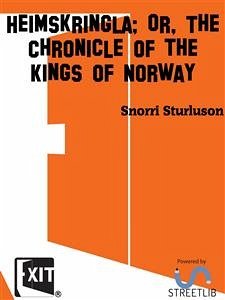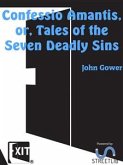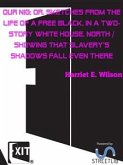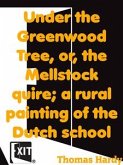PREFACE OF SNORRE STURLASON.
In this book I have had old stories written down, as I have heard them told by intelligent people, concerning chiefs who have have held dominion in the northern countries, and who spoke the Danish tongue; and also concerning some of their family branches, according to what has been told me. Some of this is found in ancient family registers, in which the pedigrees of kings and other personages of high birth are reckoned up, and part is written down after old songs and ballads which our forefathers had for their amusement. Now, although we cannot just say what truth there may be in these, yet we have the certainty that old and wise men held them to be true.
Thjodolf of Hvin was the skald of Harald Harfager, and he composed a poem for King Rognvald the Mountain-high, which is called "Ynglingatal." This Rognvald was a son of Olaf Geirstadalf, the brother of King Halfdan the Black. In this poem thirty of his forefathers are reckoned up, and the death and burial-place of each are given. He begins with Fjolner, a son of Yngvefrey, whom the Swedes, long after his time, worshipped and sacrificed to, and from whom the race or family of the Ynglings take their name.
Eyvind Skaldaspiller also reckoned up the ancestors of Earl Hakon the Great in a poem called "Haleygjatal", composed about Hakon; and therein he mentions Saeming, a son of Yngvefrey, and he likewise tells of the death and funeral rites of each. The lives and times of the Yngling race were written from Thjodolf's relation enlarged afterwards by the accounts of intelligent people.
As to funeral rites, the earliest age is called the Age of Burning; because all the dead were consumed by fire, and over their ashes were raised standing stones. But after Frey was buried under a cairn at Upsala, many chiefs raised cairns, as commonly as stones, to the memory of their relatives.
In this book I have had old stories written down, as I have heard them told by intelligent people, concerning chiefs who have have held dominion in the northern countries, and who spoke the Danish tongue; and also concerning some of their family branches, according to what has been told me. Some of this is found in ancient family registers, in which the pedigrees of kings and other personages of high birth are reckoned up, and part is written down after old songs and ballads which our forefathers had for their amusement. Now, although we cannot just say what truth there may be in these, yet we have the certainty that old and wise men held them to be true.
Thjodolf of Hvin was the skald of Harald Harfager, and he composed a poem for King Rognvald the Mountain-high, which is called "Ynglingatal." This Rognvald was a son of Olaf Geirstadalf, the brother of King Halfdan the Black. In this poem thirty of his forefathers are reckoned up, and the death and burial-place of each are given. He begins with Fjolner, a son of Yngvefrey, whom the Swedes, long after his time, worshipped and sacrificed to, and from whom the race or family of the Ynglings take their name.
Eyvind Skaldaspiller also reckoned up the ancestors of Earl Hakon the Great in a poem called "Haleygjatal", composed about Hakon; and therein he mentions Saeming, a son of Yngvefrey, and he likewise tells of the death and funeral rites of each. The lives and times of the Yngling race were written from Thjodolf's relation enlarged afterwards by the accounts of intelligent people.
As to funeral rites, the earliest age is called the Age of Burning; because all the dead were consumed by fire, and over their ashes were raised standing stones. But after Frey was buried under a cairn at Upsala, many chiefs raised cairns, as commonly as stones, to the memory of their relatives.









